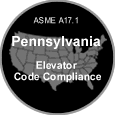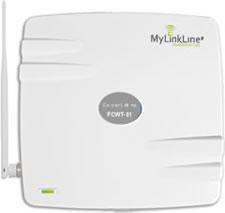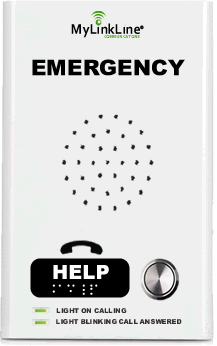
Pennsylvania Elevator Code 2024
Regulations & Standards
Find the latest information on Pennsylvania Elevator Code, laws, and safety standards. Our directories are updated monthly and include website links to help you quickly find the elevator codes and regulations for the state of Pennsylvania (PA)
Pennsylvania elevator codes impose a responsibility on building owners and property managers to adhere to specific requirements within elevators, ensuring the safety of all occupants. Failure to comply with these codes can result in penalties and potential legal action. While the particulars of the Pennsylvania elevator code may differ at the state and local levels, three primary codes govern elevator safety: the American Society of Mechanical Engineers (ASME), the International Building Code (IBC), and the Americans with Disabilities Act (ADA).
ADA
The Americans with Disabilities Act (ADA) mandates unrestricted and equal access to services for individuals with disabilities.
IBC
The International Building Code (IBC) establishes precautions against hazards associated with constructed environments.
ASME
The American Society of Mechanical Engineers (ASME) plays a pivotal role in the development of codes and standards.
The State of Pennsylvania (PA) currently operates under the 2000 ASME A17.1 with A17.1a-2002 addenda
Pennsylvania Elevator Code Authority
Occupational and Industrial Safety
The Bureau of Occupational and Industrial Safety (BOIS) administers and enforces safety standards related to asbestos occupations, boilers, building construction (Uniform Construction Code), elevators (uniform Construction Code), flammable and combustible liquid, lead occupations and liquefied petroleum gas. Clicking on the photo icons in the center of this page will take you to pages where you can find compliance information for each of these major safety programs administered by BOIS.

Pennsylvania Elevator Code Authority
The Department of Labor & Industry (L&I) has partnered with ePlanSoft to provide site hosting that will allow the digital submissions of building plans for L&I customers. Meaning persons who must make an application to L&I for building approvals or to otherwise comply with the UCC, may use this service. Previously, these plans would require three sets of drawings to be mailed to the L&I building in Harrisburg.
Utilizing the new goPost digital plan review system, design professionals are now able to upload plans online for review by L&I’s certified plan examiners. Under the new system, only one digital plan is needed. Any form that was previously needed for plan review is still required. Any fee associated with a project is still required and will need to be mailed until the online payment system is implemented. Applicants can provide a scan of the check and upload it along with the submitted plans. The check will then need to be mailed to the building.
Please note that a delay may occur while the Department awaits payment. Until online payment processing is integrated, we recommend that any expedited submission follow the paper application process until that enhancement is in place
Elevator Cellular Phone Lines
How to eliminate the cost of traditional elevator phone lines and save 35% or more. Our cellular elevator phone lines conform to ASME, ADA, and IBC codes, encompassing all requirements of the Pennsylvania elevator code.

Pennsylvania also follows IBC 2018, which includes additional requirements for new elevator installations
If your elevator travels over 60 feet. A two-way communication system will be installed in the elevator that provides both visible text and audible modes per code requirements. If you’re modernizing the elevator it’s advisable to consult your local Pennsylvania elevator code authority for guidance on the applicable regulations.
- Two-way message display in the elevator cab for hearing and/or speech impaired
A method for authorized personnel to access video footage of passengers from any location within the cabin - A mechanism triggered by emergency personnel to modify the cabin message, signaling that assistance has arrived on-site
Please be advised that we are committed to consistently delivering accurate and current adoption information. We diligently update our records as new Pennsylvania elevator code information becomes available.
Pennsylvania Elevator Code – Elevator Phone Requirements ASME A17.1
- Two-way communication between elevator and authorized personnel
- On-site communications if over 60 ft of travel
- Communication between the elevator if elevator has remote machine room
- Answer by live authorized personnel – no automated answering
- Communication capability for onsite emergency personnel
- On-site monitoring if staffed 24/7 by authorized personnel
- Location identification on demand to authorized personnel
- Location identification without voice communication
- Hands-free devices only and telephone handsets are not allowed
- Phone automatlly answers when calling into elevator
- Automatic redirect if no answer onsite
- Monitoring the status of local telephone lines and issuing local alerts

Emergency Elevator Phones
MyLinkLine will only install elevator telephones that meet code requirements. We also comply with ADA, ASME, ANSI and IBC codes in addition to all State and Local requirements if applicable. Volume pricing available.

Elevator Phone Monitoring Service
Our dispatch center has been delivering professional service for over twenty years. Our staff has extensive technical and interpersonal training to assist in emergency and non-emergency situations.

Lifetime Product Warranty
If any part of your elevator telephone(s) or elevator cellular landline fails at any time during your lifetime due to a defect in material or workmanship, we will repair or, at our option, replace the defective device at our cost***
